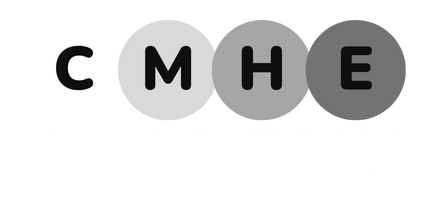Australian DBT Institute Workshop Materials
Essentials in DBT (Youth Adaptions)
This program is offered as self-paced learning or as resources following a 2 day training by the Australian DBT Institute. Participants are provided with a range of DBT resources that were presented throughout the face-to-face training.
Write your awesome label here.
Dialectical Behaviour Therapy
An evidence based approach developed by Professor Marsha Linehan from the USA.
Ongoing Access
Participants of this course have ongoing access to all materials provided through this CMHE Academy portal.
Certificate
A certificate of completion is available on CMHE Academy in the final section of this program.
Copyright
All materials are copyrighted. When using the materials provided please acknowledge each author!
DBT Youth Essentials
DBT Youth Essentials
DBT Youth Essentials
DBT Youth Essentials
DBT Youth Essentials
DBT Youth Essentials
Professionals working with suicidal adolescents with multiple problems are often challenged by complex clinical presentations and the many dilemmas that arise during treatment.Evidence suggests that Dialectical Behaviour Therapy (DBT) can help suicidal adolescents and their families.
This 2-day workshop explores the Essentials of DBT and its application to an adolescent population to engage and retain clients.Participants will advance their knowledge in specific principles and strategies relevant to DBT skills training and coaching with adolescents and families, individual therapy, family sessions, and managing communication and coaching outside of session (e.g. phone calls, emails, texts, etc.). Specific attention will be paid to teaching adolescents and families the skills of dialectics, validation, and behaviour change (“Middle Path”).
Content Covered
This 2-day workshop explores the Essentials of DBT and its application to an adolescent population to engage and retain clients.Participants will advance their knowledge in specific principles and strategies relevant to DBT skills training and coaching with adolescents and families, individual therapy, family sessions, and managing communication and coaching outside of session (e.g. phone calls, emails, texts, etc.). Specific attention will be paid to teaching adolescents and families the skills of dialectics, validation, and behaviour change (“Middle Path”).
Content Covered
- Introducing Dialectical Behaviour Therapy (DBT) to clients.
- Explaining the biosocial theory behind DBT.
- Teaching the middle path skills of dialectics, behavioural change, and validation.
- Structure treatment according to the level of severity and prioritise treatment targets.
- Orientating to emotion dysregulation.
- Enhance motivation and commitment to treatment goals.
- Coach clients through obstacles that arise during treatment.
- Explore the structure of both a DBT and DBT informed approach.
- Understanding of the role of commitment, skills group, individual therapy, phone coaching and consultation team.
- Overview of DBT Skills Training (Structure, Homework and Facilitation of Skills)
Mindfulness, Emotion Regulation, Distress Tolerance and Interpersonal Effectiveness Skills components of DBT - Involve families in DBT.
Australian DBT Institute Workshop Materials
Essentials in Dialectical Behaviour Therapy (Youth Adaptions)
Meet the Australian DBT Institute's Lead Faculty
Dr. Peter L. King
DBT & Trauma Therapy Lead
Dr. King is the Clinical and Academic Lead at the Australian DBT Institute. He is the developer of DBT Assist, DBT-TI and Stabilisation Based Therapy.
Allan Murray
First Nations Programs
Allan is DBT trained and leads our first nations adaptions of DBT including training programs.
Stuart Langley
Forensic Lead
Stuart is a Psychologist and delivers the RUSH training program at the Australian DBT Institute.
Dr. Sophie Rushbrook
RO DBT Lead
Dr. Rushbrook is a Clinical Psychologist and international faculty delivering Radically Open DBT training.


